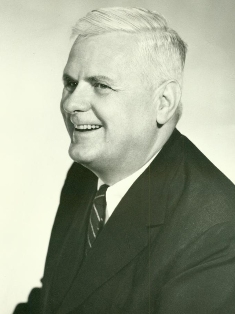Church encodings written in Python
Project description
# Church Encodings in Python
This exercise was to demonstrate and play around with church encodings in a more involved way, and as a way for me to gain experience with python and it’s type system.
Church encodings were developed by the late and famous Alonzo Church. Church is probably most well known for inventing lambda calculus, a formal branch of mathematics that introduces the notion of lambas, or anonymous functions. You may have used them before when programming.
Church encodings are a very interesting development arising from lambda calculus. Church found out that every concept in programming languages can be represented using functions! everything from boolean logic, conditional statements, numbers (natural, integer, real, complex, imaginary), and even loops (infinite loops also)!
The most interesting thing about this is that numbers aren’t anything special in math, they’re just convenient placeholders. Math is really just logic in it’s purest form.
So far I’ve translated church booleans, church boolean operators, church conditionals, church comparison operators, church numerals (natural numbers), church arithmetic operators (for natural numbers), church lists, church integers, loops with the z-combinator, and church arithmetic operators (for integers) less the exponential and factorial operators.
View the package on [PyPI](http://pypi.python.org/pypi/church_encoding/)
## Z Combinator
The Z combinator is used in place of the Y combinator in normal form progrmaming languages that don’t implement lazy evaluation or call by name. See the [fixed-point combinator](https://en.wikipedia.org/wiki/Fixed-point_combinator) wiki for more details.
## Conditionals
The translation for some of the lambda functions involved using regular if/then statements instead of the ifelse lamdba function. I suspect that this might again be a limitation like the Z combinator, where the evaluation order plays a role in being able to use lambdas in the truest sense. There may be a workaround I’ll find to get it to work some day.
## Installation
- Install using pip.
pip install --user church_encoding
- Import the church module.
python >>> import church_encoding.church as church
- Play around with the functions.
>>> dir(church) >>> (church.unchurch_bool) ((church.AND) (church.true) (church.false)) False
Here is a full list of the commands:
Boolean true/false: true, false, unchurch_bool
Boolean operators: AND, NOT, OR, XOR
Z-combinator: Z
Conditional: ifelse
Natural numbers: zero, one, two, three, num, unchurch_num
Integers: convertNZ, unchurch_int
Comparison operators (natural numbers): eq, geq, gt, leq, lt
Arithmetic operators (natural numbers): pred, succ, add, sub, mult, div, divnZ, exp, fac, is_zero
Arithmetic operators (integers): addZ, subZ, multZ, divZ, neg, onezero
Lists: car, cdr, cons
For usage examples, see the [test suite](https://github.com/Risto-Stevcev/python-church-encodings/blob/master/church_encoding/test/church_test.py)
## Credits
I’d like to give credit where it’s due:
[James Tauber’s Blog](http://jtauber.com/blog/2008/11/26/church_encoding_in_python/) for starting me off in the right direction.
The [chuch encoding](https://en.wikipedia.org/wiki/Church_encoding) wikipedia page for being so incredibly detailed and informative.
And finally, Church himself, for being such a badass!
 Alonzo Church
Project details
Release history Release notifications | RSS feed
Download files
Download the file for your platform. If you're not sure which to choose, learn more about installing packages.











